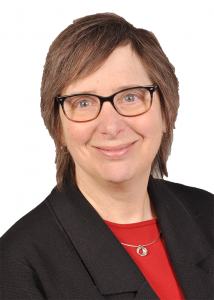SUNY Upstate physician to be recognized for work toward treatment and cure of diabetes —noted for delivering telehealth for diabetics and developing research projects for treatment and prevention
By Chris Motola
 Q: You recently received a the Samuel Eichold II Memorial Award for Contributions in Diabetes. Tell us more about it.
Q: You recently received a the Samuel Eichold II Memorial Award for Contributions in Diabetes. Tell us more about it.
A: That’s a national award from the American College of Physicians. It was established to recognize either a physician who has made important healthcare delivery innovations for diabetes patients or done research that’s significantly improved the quality of care for diabetes patients. It can be given to a physician or an organization. I was nominated, and physicians across the country wrote letters of support. Over the past 30 years, my research has focused on the study of new approaches for the prevention and management of diabetes and its complications. We were one of the first to do major work in the area of telemedicine. I have over 200 publications and have been in an investigator in over 100 clinical research projects.
Q: What areas of research that you participated in do you feel had a big impact on the way diabetes care is delivered?
A: I think one is in the area of telemedicine. That work started almost 20 years ago. We were involve very early on. Now it’s becoming more common. But we were one of the first to show its utility in providing diabetes education to patients who lived far from centers, also for provider education. Also for patient management, like older adults who might have access issues that prevent or hinder them from reaching a diabetes center or their physicians. One study we did helped primary care physicians better take care of their patients. We showed that it helped patients improve their blood sugar control, their cholesterol, their blood pressure control. We did a telemedicine project involving children. We showed that it can help visits to emergency rooms, for urgent care and help their school nurses better control the children’s diabetes in school. We’ve done projects in skilled nursing facilities. We’ve been delivering telehealth for diabetes to the prison population. We’ve also done research on preventing complications from diabetes.
Q: Is this for Type 1 for Type 2?
A: I’ve also done a lot of work with Type 1 diabetes. Many people think of it as childhood diabetes, and that’s usually when it has its onset, but what’s less known is that it can also have its onset in adulthood. Type 1 is not associated with obesity. It’s an autoimmune disease where the body has a triggering event that causes it to start destroying its insulin-producing cells. There have been many advances in Type 1, so the life expectancy is a lot longer. We’ve been involved in critical trials with some of the newer therapies: insulin pumps, glucose-monitoring devices. One of our contributions showed that with older adults with Type 1 hypoglycemia, blood sugar that’s too low, can be a problem. So we’ve been doing work with continuous glucose-monitoring. These are relatively new devices where patients wear a sensor, which is a thin filament that goes under the skin, and a transmitter that goes over it that transmits their sugar or glucose levels to a receiver. That receiver can alarm when the blood sugar is too low or too high. In addition, some of them can communicate with insulin pumps to prevent low blood sugar by cutting off insulin infusion. It’s a great safety feature we didn’t used to have. And we’ve been involved in the study of all those devices and finding ways to make living with Type 1 diabetes safer.
Q: How about Type 2?
A: We’ve also done a lot of work with Type 2 diabetes, testing new medications and devices. Now that’s a type that’s largely related to obesity, as well as the pancreas not being able to make enough insulin. We’ve also been involved in studies on the prevention of Type 2 diabetes. All of the reasons we have an increase in diabetes aren’t completely clear. And it’s not just Type 2, but Type 1 as well. So the increase in Type 1 is not related to obesity. Whether it’s related to a virus or an environmental toxin or some combination, that’s being researched. We do know Type 2 — being overweight or obese does increase your chances of developing Type 2, although there are people who aren’t obese who do develop Type 2.
Q: How does weight affect development of Type 2?
A: What happens when you gain weight, particularly around your belly and organs, that tends to make you more insulin resistant. That means you need to make more insulin to keep your blood sugar normal. So even if your insulin-producing cells are working at 80 percent capacity, that might be enough if you’re thin, but if you’re obese and insulin resistant, your pancreas may not be able to make enough insulin to keep your blood sugar under control.
Q: Is Type 2 reversible?
A: Very early if you lose weight or get bariatric surgery, your blood sugar levels can return to normal without medication. Whether they’ll stay normal for the rest of their lives, we don’t know yet, but they can stay normal for many years. It depends at what point you lose the weight. Earlier is usually more effective. If you’ve been obese and needed insulin for many years and then lose the weight, you may still need insulin. Not as much, but still some. Once the destruction of the insulin-producing cells starts, it tends to continue.
Q: So the cells are also destroyed with Type 2?
A: Not all of them like in Type 1, where over 90 percent are destroyed. With Type 2, it can vary, but you’re not functioning with 100 percent.
Q: Where do you see your career going from here?
A: I’ll continue doing research. We have several grants pending. We want to do as much as we can to help take care of patients, increase access to treatments. And the ultimate goal, of course, is prevention and a cure. There are many people working on that and we try to make as much of a contribution as we can. And another important thing for me at this stage of my career is teaching the next generation.
Lifelines
Name: Ruth Weinstock, M.D.
Position: Medical director of the clinical research unit at SUNY Upstate; medical director of the Joslin Diabetes Center at Upstate
Hometown: Queens, NY
Education: Columbia University
Affiliations: SUNY Upstate University Hospital
Organizations: Juvenile Diabetes Research Foundation; American College of Physicians; American Association of Clinical Endocrinologists
Family: Two daughters, two sons-in-law, two grandchildren
Hobbies: Time with grandchildren, walking, hiking, outdoor activities

